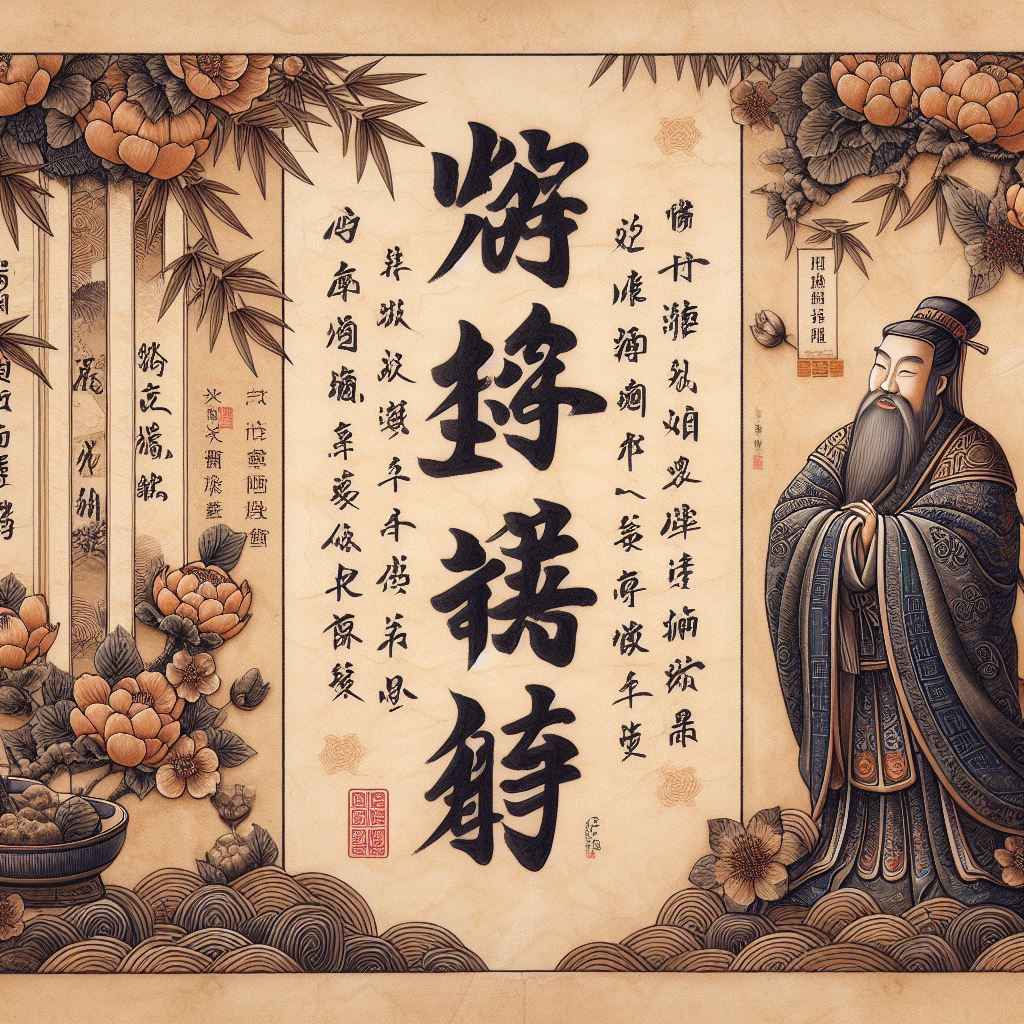Confucius, also known as Kongzi or Kong Fuzi, was a Chinese philosopher and teacher who lived during the Spring and Autumn Period of ancient China, around the 6th to 5th century BCE. His teachings, which became known as Confucianism, have had a profound and enduring influence on Chinese culture, politics, and philosophy. Confucius’s philosophy is centered around the cultivation of moral virtues, the importance of social harmony, and the pursuit of ethical living. Through his teachings and writings, Confucius imparted timeless wisdom that continues to resonate with people around the world.
One of the central concepts in Confucian philosophy is the notion of ren, often translated as “benevolence,” “humanity,” or “compassion.” Ren represents the ideal of moral virtue, encompassing qualities such as kindness, empathy, and altruism. Confucius believed that the cultivation of ren was essential for achieving personal fulfillment and contributing to the well-being of society. He famously stated, “What you do not want done to yourself, do not do to others,” encapsulating the golden rule of ethical behavior.
Another key principle in Confucianism is li, which can be translated as “ritual,” “propriety,” or “etiquette.” Li refers to the proper conduct and behavior expected in social interactions, including respect for elders, filial piety, and adherence to traditional customs and rituals. Confucius emphasized the importance of observing li as a means of maintaining social order and harmony within society. He believed that by cultivating a sense of propriety and decorum, individuals could cultivate harmonious relationships with others and contribute to the stability of society.
In addition to ren and li, Confucius also stressed the importance of zhong, or “loyalty” and “fidelity,” and xiao, or “filial piety.” Zhong emphasizes the importance of loyalty to one’s family, friends, and ruler, while xiao emphasizes the virtue of honoring and respecting one’s parents and ancestors. These virtues were seen as essential for maintaining social cohesion and moral integrity within society.
Confucius also placed a strong emphasis on the importance of education and self-cultivation. He believed that through the pursuit of learning and self-improvement, individuals could attain moral excellence and fulfill their potential as human beings. Confucius famously remarked, “Education breeds confidence. Confidence breeds hope. Hope breeds peace.” He advocated for a holistic approach to education that emphasized not only the acquisition of knowledge but also the cultivation of moral character and ethical values.
Central to Confucian ethics is the concept of the junzi, often translated as the “gentleman” or the “superior individual.” The junzi is characterized by moral integrity, wisdom, and humility, and serves as a model of virtuous conduct for others to emulate. Confucius believed that the junzi possessed a sense of inner harmony and balance, enabling them to navigate life’s challenges with grace and dignity.
Confucius also emphasized the importance of self-reflection and introspection as a means of cultivating moral self-awareness. He encouraged his followers to engage in constant self-examination and strive for self-improvement in all aspects of their lives. Confucius famously said, “To see what is right and not do it is want of courage.”
Another important aspect of Confucian philosophy is the concept of the Dao, or the “Way.” The Dao represents the natural order of the universe, characterized by harmony, balance, and moral goodness. Confucius believed that by aligning oneself with the Dao and living in accordance with its principles, individuals could achieve a state of inner peace and harmony.
Confucius’s teachings were compiled by his disciples into a collection of texts known as the “Analects.” These writings contain a record of Confucius’s conversations and teachings, offering insights into his philosophy and worldview. The Analects cover a wide range of topics, including ethics, politics, education, and personal conduct, and continue to serve as a foundational text in Confucian thought.
In addition to the Analects, Confucianism also encompasses a rich body of literature and commentary, including the works of later Confucian scholars such as Mencius and Xunzi. These thinkers built upon Confucius’s teachings, further developing and elaborating on his ideas in response to the changing social and political conditions of their time.
Confucianism has had a profound and enduring influence on Chinese society and culture, shaping the moral and ethical values of generations of Chinese people. Confucian principles continue to inform Chinese social norms, family relationships, and political ideals, and Confucius himself is venerated as one of the greatest sages in Chinese history.
